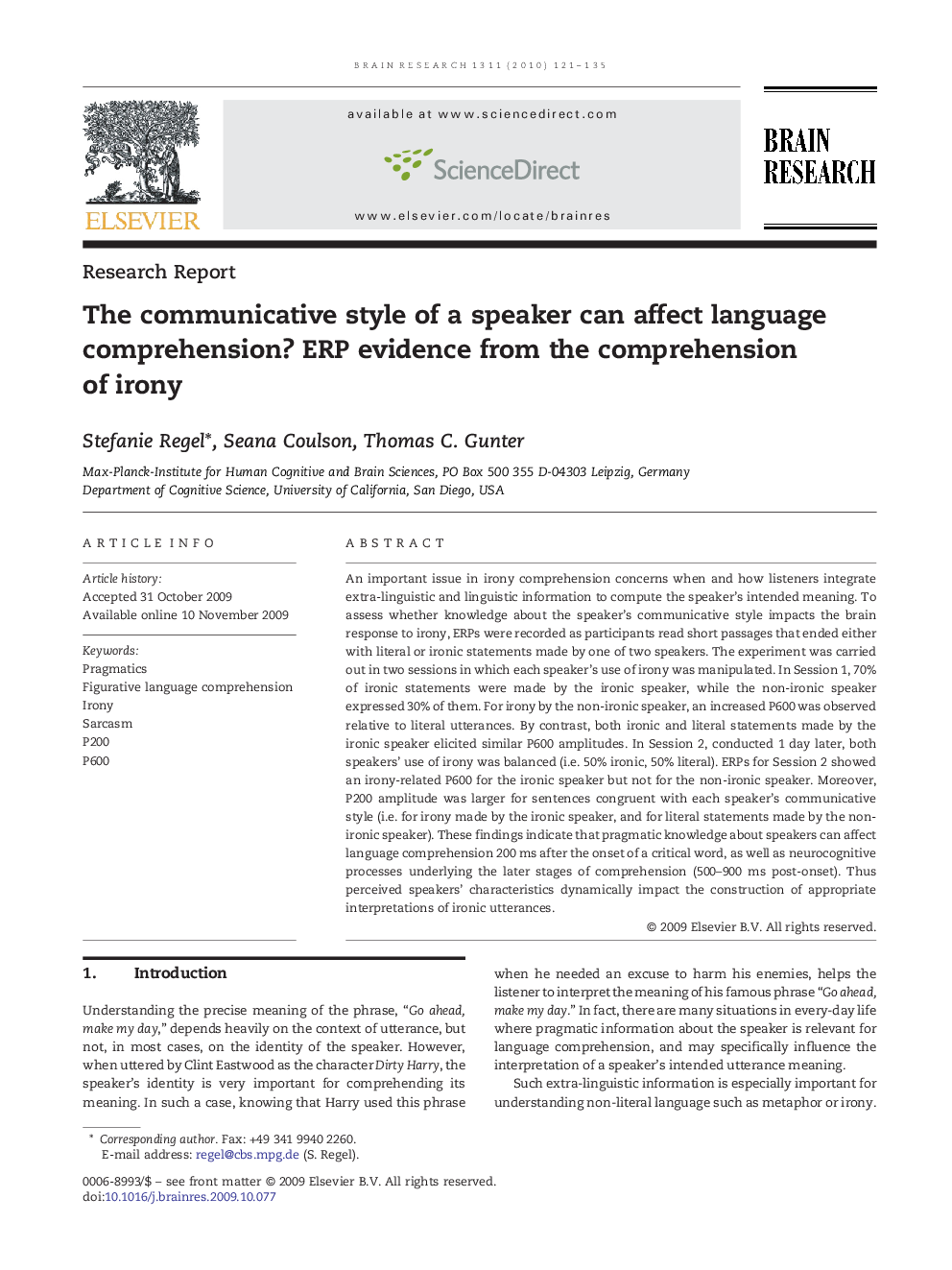| Article ID | Journal | Published Year | Pages | File Type |
|---|---|---|---|---|
| 4327487 | Brain Research | 2010 | 15 Pages |
An important issue in irony comprehension concerns when and how listeners integrate extra-linguistic and linguistic information to compute the speaker's intended meaning. To assess whether knowledge about the speaker's communicative style impacts the brain response to irony, ERPs were recorded as participants read short passages that ended either with literal or ironic statements made by one of two speakers. The experiment was carried out in two sessions in which each speaker's use of irony was manipulated. In Session 1, 70% of ironic statements were made by the ironic speaker, while the non-ironic speaker expressed 30% of them. For irony by the non-ironic speaker, an increased P600 was observed relative to literal utterances. By contrast, both ironic and literal statements made by the ironic speaker elicited similar P600 amplitudes. In Session 2, conducted 1 day later, both speakers' use of irony was balanced (i.e. 50% ironic, 50% literal). ERPs for Session 2 showed an irony-related P600 for the ironic speaker but not for the non-ironic speaker. Moreover, P200 amplitude was larger for sentences congruent with each speaker's communicative style (i.e. for irony made by the ironic speaker, and for literal statements made by the non-ironic speaker). These findings indicate that pragmatic knowledge about speakers can affect language comprehension 200 ms after the onset of a critical word, as well as neurocognitive processes underlying the later stages of comprehension (500–900 ms post-onset). Thus perceived speakers' characteristics dynamically impact the construction of appropriate interpretations of ironic utterances.
